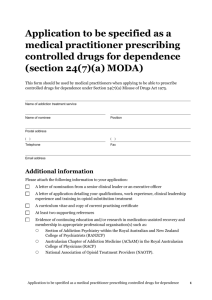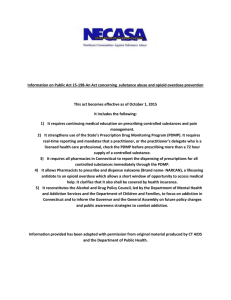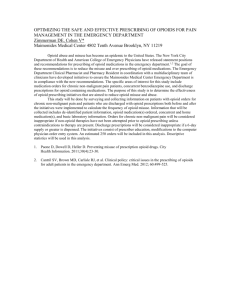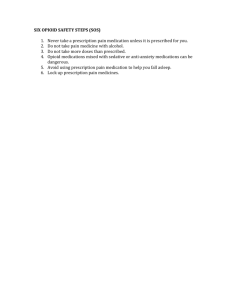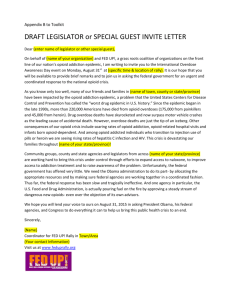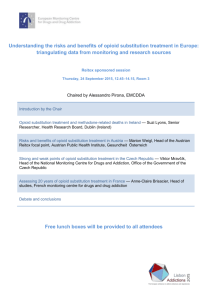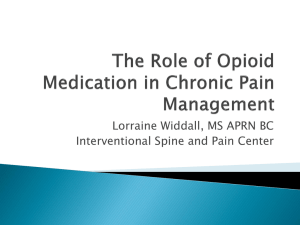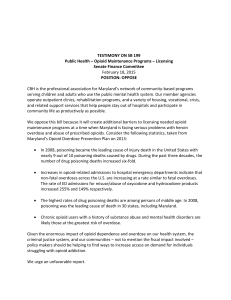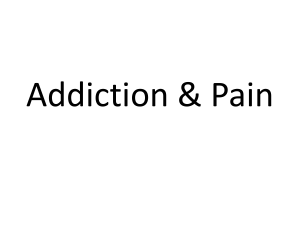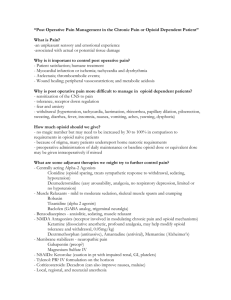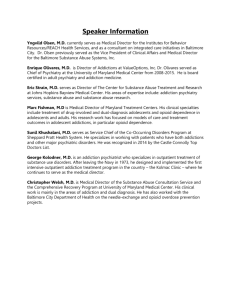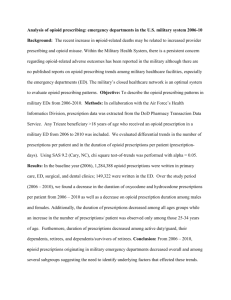ED Opioid Management - Hospital Commitment Form
advertisement
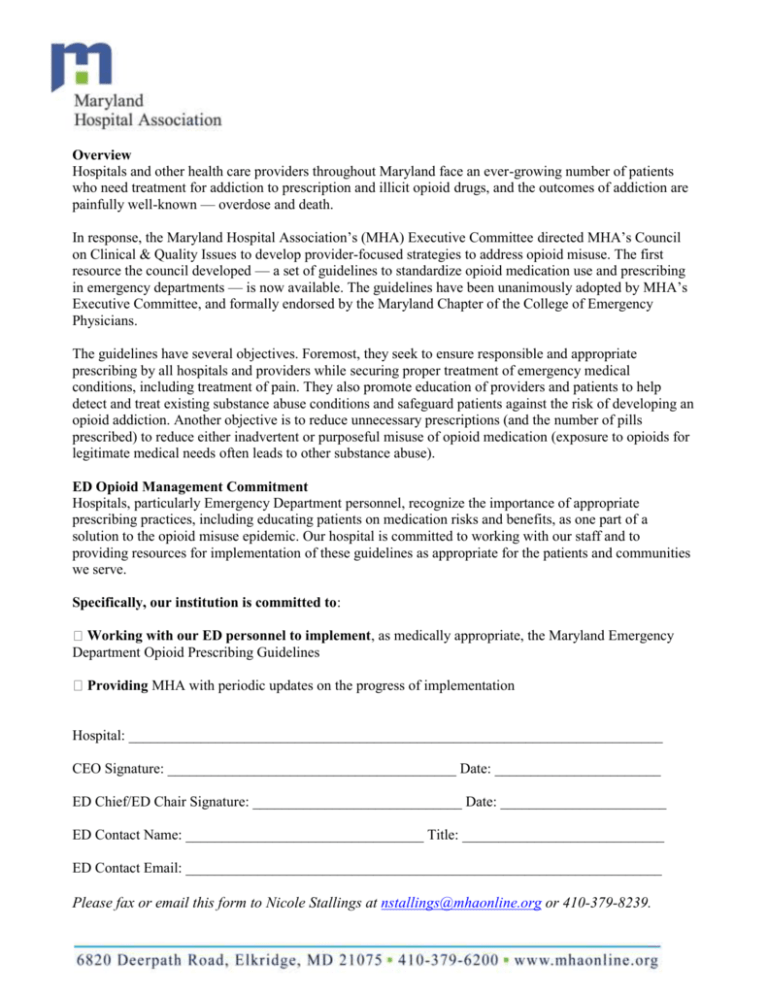
Overview Hospitals and other health care providers throughout Maryland face an ever-growing number of patients who need treatment for addiction to prescription and illicit opioid drugs, and the outcomes of addiction are painfully well-known — overdose and death. In response, the Maryland Hospital Association’s (MHA) Executive Committee directed MHA’s Council on Clinical & Quality Issues to develop provider-focused strategies to address opioid misuse. The first resource the council developed — a set of guidelines to standardize opioid medication use and prescribing in emergency departments — is now available. The guidelines have been unanimously adopted by MHA’s Executive Committee, and formally endorsed by the Maryland Chapter of the College of Emergency Physicians. The guidelines have several objectives. Foremost, they seek to ensure responsible and appropriate prescribing by all hospitals and providers while securing proper treatment of emergency medical conditions, including treatment of pain. They also promote education of providers and patients to help detect and treat existing substance abuse conditions and safeguard patients against the risk of developing an opioid addiction. Another objective is to reduce unnecessary prescriptions (and the number of pills prescribed) to reduce either inadvertent or purposeful misuse of opioid medication (exposure to opioids for legitimate medical needs often leads to other substance abuse). ED Opioid Management Commitment Hospitals, particularly Emergency Department personnel, recognize the importance of appropriate prescribing practices, including educating patients on medication risks and benefits, as one part of a solution to the opioid misuse epidemic. Our hospital is committed to working with our staff and to providing resources for implementation of these guidelines as appropriate for the patients and communities we serve. Specifically, our institution is committed to: Working with our ED personnel to implement, as medically appropriate, the Maryland Emergency Department Opioid Prescribing Guidelines Providing MHA with periodic updates on the progress of implementation Hospital: __________________________________________________________________________ CEO Signature: ________________________________________ Date: _______________________ ED Chief/ED Chair Signature: _____________________________ Date: _______________________ ED Contact Name: _________________________________ Title: ____________________________ ED Contact Email: __________________________________________________________________ Please fax or email this form to Nicole Stallings at nstallings@mhaonline.org or 410-379-8239.
